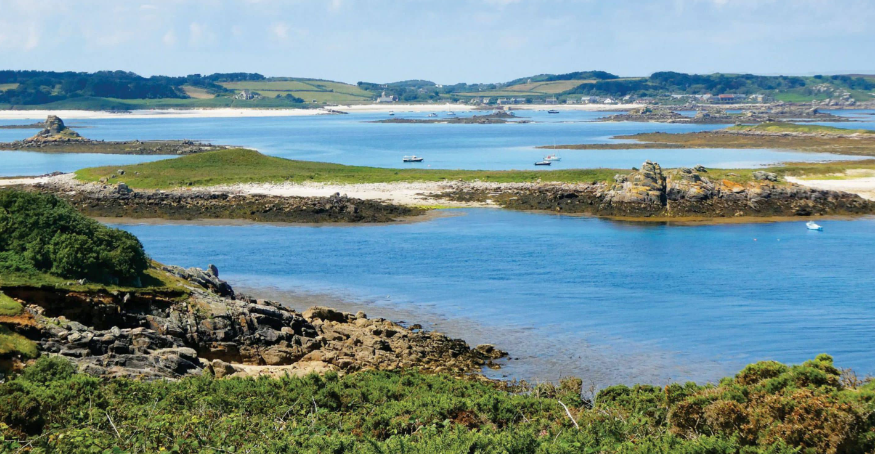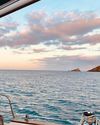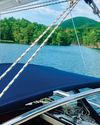
Mary and I are very fond of the Isles of Scilly. In fact, we regard the archipelago as the most delightful cruising destination to be found anywhere around the British Isles or North West France. We often encounter other cruisers who have been making regular, annual pilgrimages to this Atlantic outpost, drawn by the clear water, golden sands and oceanic scenery.
We also know sailors who never quite get there, possibly deterred by the location and by published warnings to the effect that there is no place with all-round shelter against bad weather. Scilly enthusiasts accept that they may have to move between different moorings and anchorages, according to the wind direction. Even so, under certain conditions it can be difficult to decide on the best course of action, particularly if the wind is expected to undergo a major directional shift while continuing to blow strongly, so that any move has to be made at the height of the gale. Those Scilly enthusiasts usually gain a lot of experience from every summer cruise, especially if it is not very summery. However, there is always more to learn, so in 2022 we tried a new combination of anchorages.
STORM SHIFTS
Bad weather can assault the Isles of Scilly from any direction, but we’re going to focus on fairly typical summer gales, as caused by depressions tracking in from the west and passing to the north of the islands. This is likely to induce the classic weather sequence familiar to all sailors in home waters: a wind that backs to south, then strengthens and veers, finally going round to NW as the low-pressure spirals away to bother the North Sea. If the depression’s track takes it very close to Scilly the wind might start by backing to ESE and finish with a sharp, squally veer, meaning a larger directional swing and extra violence. That happened in 2021, when Storm Evert caused mayhem, and ever since then we have been conscious it could happen again.
This story is from the Summer 2024 edition of Yachting Monthly UK.
Start your 7-day Magzter GOLD free trial to access thousands of curated premium stories, and 9,000+ magazines and newspapers.
Already a subscriber ? Sign In
This story is from the Summer 2024 edition of Yachting Monthly UK.
Start your 7-day Magzter GOLD free trial to access thousands of curated premium stories, and 9,000+ magazines and newspapers.
Already a subscriber? Sign In

Midsummer on Hanö
This wonderful little island in the south-east of Sweden is a real gem off the beaten track

ADVENTURE SAILING TO HAITI
After spending two months in the Dominican Republic, Andy Brown sails west to Haïti bringing medical and school supplies to the town of Mole Saint Nicholas

In celebration of bad sailing
New owner Monty Halls tests his sailing skills with his family aboard their Colvic 34 ketch, Sobek. A recently qualified Day Skipper, Monty faces a few unexpected challenges...

Winter brings excitement and opportunity
Oddity’s double glazing, insulation and heating create a warm, homely environment as I bash out this column.

ADVENTURE MAISIE GOES TO GOES
To depart or not to depart? That is the question. Is it safer to stay, or suffer the wind and weather of a rough North Sea?

'MAYDAY, GRANDAD OVERBOARD!'
When David Richards and his grandson Henry went out racing from lowey, they didn't expect their sail to end with a lifeboat rescue

VERTUE
For a 25-footer, the Vertue has a huge reputation and has conquered every ocean. So what makes this little boat quite such an enduring success? Nic Compton finds out

Sailing siblings
Mabel Stock, her brother Ralph, a friend Steve and an unnamed paying passenger passed through the Panama Canal in December 1919 on the sturdy Norwegian cutter Ogre. They were towed to a quiet anchorage in Balboa away from the boat traffic but within rowing distance of the shore.

TECHNICAL MAINSAIL MODIFICATIONS
Safety and performance improved hugely when Mike Reynolds reduced the size of his mainsail and re-configured the systems controlling it

PILOTAGE DONE PROPERLY
Chartplotters are an amazing aid, but can detract from your real-world pilotage if not used with caution, says Justin Morton